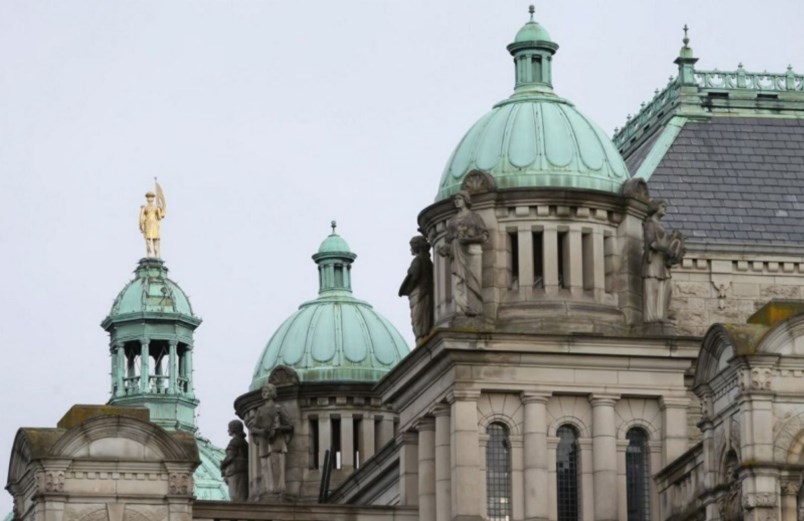After sifting through the sands of Engage BC last week – what passes for the citizen engagement process in this province – Vaughn Palmer found something for his column: a change to the Land Act that would make it possible for First Nations to collaboratively govern their traditional territories that have been designated “Crown Land” (i.e. nearly the whole province).
And this innocuous column has led to a proliferation of hyperbole from Palmer and others –Nathan Cullen was attempting to sneak through legislation that would lead to First Nations having a veto over development; First Nations having a say over how their traditional territories are governed is a threat to democracy; this will spell doom for potential resource projects. Chicken Little comes to mind, especially considering the track record of the province when it comes to actually sharing power with First Nations.
Cullen’s response was that these changes were part of the implementation of the Declaration of the Rights of Indigenous Peoples Act, which itself implements the UN Declaration on the Rights of Indigenous Peoples in BC. Moving forward with reconciliation means sharing decision-making with the people who were here first. And, of course, Cullen’s mea culpa focused on the importance of engagement with British Columbians.
What I want to explore is how this mess, in which First Nations are once again being used as political footballs in an election year (and which in some possible worlds could turn into a “Gordon-Campbell-referendum-on-the-treaty-process” embarrassment), could have been avoided.
The real issue in my opinion is that the provincial government has not articulated a clear vision of what reconciliation means, why BC needs to enter into it, and how the outcomes will benefit everyone.
If I were to piece together a vision for BC from this government, it would be a province where the pre-existing jurisdictions and decision-making processes of First Nations are reconciled with the Crown’s jurisdiction and decision-making processes. The result would be a coordination of these systems to produce legitimate, sustainable decisions, and involve the people living in the places impacted by those decisions. Basically, settlers and Indigenous peoples work together to make decisions, and decisions about the land are made closest to where they will be felt.
Democracy, baby.
The reality is, even if this vision of harmony were well-articulated, there are plenty of people who don’t want to see First Nations increasing their jurisdiction and authority. They may see First Nations as inherently anti-business. They may think that First Nations have only gotten in the way of expedient resource extraction in the past, and therefore should be excluded from decision-making in the future.
But I think that at bottom, our colonial propaganda machine that began for many of us with the public school system, and continues to inform many systems, is really behind why many of us settlers have an aversion to collaborating with First Nations when it comes to decision-making on the land. For this mix of reasons, at least one vocal segment of settler society continuously claims that First Nations are in no position to make decisions about their own lands.
(Aside: If you doubt the existence of colonial propaganda in our school system, I point to my own Grade 10 textbook, standard curriculum in the 1990s, that pointed to Indigenous peoples’ penchant for booze as the cause of their being colonized. Anyone who knows anything about trauama and addiction knows that the addiction is caused by the trauma, not the other way around.)
So part of communicating this vision of reconciliation needs to include the reality of why First Nations may have been doing things like blockading logging roads. It’s pretty simple: it’s their land, and not only have they have been excluded from any decisions about what to do with it, they have been excluded from the economic benefits of the resources extracted from it. Increasing First Nations authority in decision-making isn’t some good will gesture from bleeding heart socialists. It’s a legal and economic imperative.
Legal because time and time again the Canadian courts, using Canadian law, have found that, basically, the BC government doesn’t have the receipt for most of the province. They have been making decisions since at least 1871 without the authority to do so, and therefore the courts continually pile on conditions on these decisions that logically lead us to just sharing decision-making.
(Another aside: Interestingly enough, in a recent court decision at the BC Supreme Court -- Thomas and Saik’uz First Nation v. Rio Tinto Alcan Inc -- Justice Kent went so far as to say Crown sovereignty is a legal fiction used to justify the dispossession of lands from Indigenous peoples. But since he’s a judge in the Canadian court system, whose authority is based on that fiction, he had to set that aside and make a ruling.)
And economic, because if there isn’t some way of First Nations actually getting to decide what happens on their own lands, then they are going to go back to the blockades – and the courts. And the BC government knows that if First Nations go back to resorting to lengthy and costly legal proceedings, the government will just keep losing.
So, the vision for the future of BC that the NDP government really needs to be communicating is one where decisions are made by the people who are most impacted by those decisions, and who also have the most knowledge of what’s happening on the ground. In order to bring everyone along on this bumpy road of reconciliation, we need greater communication about the vision that is being accomplished by things like a revision to the Land Act.
Andreas Krebs is a Prince George writer.



